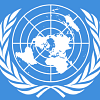‘A violent crackdown during elections does not inspire voter confidence’

Meenakshi Ganguly, deputy director of Human Rights Watch's Asia Division, speaks to Ramisa Rob of The Daily Star on the violation of rights of activists and leaders of the opposition, abuses by state institutions, censorship and overall human rights situation in Bangladesh ahead of its upcoming national election.
How would you describe the human rights situation in Bangladesh?
The human rights situation in Bangladesh is extremely concerning due to the nation's steady slide towards authoritarianism. Bangladeshis have repeatedly been denied their right to safely choose their leaders due to fear of violence and a crackdown on the political opposition. The Awami League government has committed to socioeconomic welfare, but as the recent protests by garment workers has shown, there remain serious gaps in helping citizens cope with the rising cost of living. Meanwhile, the government has destroyed independent institutions, including the legal system, with partisan arrests and lack of accountability for abuses by authorities. There is also extreme intolerance for criticism, even in humour, against Prime Minister Sheikh Hasina, her family, and political supporters—all of which can lead to arbitrary arrests.
Is the legal system playing its due role in upholding human rights?
The Bangladeshi judicial system is under acute political pressure. The security forces commit abuses with impunity, and there is no effective justice mechanism to hold them accountable. On the other hand, in cases against those the government does not like, the prosecution does not even bother to present credible facts. Nor do judges uphold international standards by insisting on proper evidence, leading to serious allegations of "ghost trials." Independent observers of the trial of Adilur Rahman Khan and Nasiruddin Elan, leaders of the human rights group Odhikar, found the proceedings unfair. After Khan and Elan's arrest, 39 organisations called on the government to quash their convictions, and those against other human rights defenders.
What should the government do to address the ongoing human rights violations?
The ruling Awami League needs to believe in the international standards that it had relied on while being the opposition, back when it was garnering support for democracy in Bangladesh. At that time, the current prime minister had criticised security forces for abuse and bias, and spoken out against her detention and ill-treatment in custody. She pledged that, once in office, she would end serious violations including torture, killings, arbitrary arrests, and enforced disappearances by security forces and would hold them to account. She repeatedly claimed the right to free speech. However, during its three consecutive terms in office, her government seems to have done away with those same human rights principles.
Bangladesh's influential civil society has a long history, led by intellectuals, lawyers, academics, economists, and more. But instead of working with them for common good and addressing their criticism, the government often appears determined to crush dissent. The last two parliaments have had no opposition representation, which undermines democracy. The Awami League government seems to have lost the confidence required to win a fair fight, and continuously interferes with the election process.
As in the past, if there is a failure to hold credible, participatory elections, the new parliament in 2024 will once again lack proper representation. This will undermine democracy; and the government, since it will not be accountable to another party, may regress further towards authoritarianism and corruption.
How do you interpret the recent Universal Periodic Review and its assessment of Bangladesh?
Numerous member states raised concerns and made recommendations during Bangladesh's Universal Periodic Review. Unfortunately, Bangladesh has failed to act on these recommendations in the past, as well as others made by independent UN experts. The government is yet to implement the recommendations made by the United Nations Committee against Torture to end the widespread practice of torture in the country. Nor has it accepted the offer from the UN to support an independent commission of inquiry into enforced disappearances by the country's security forces. Instead, the authorities continue to deny these serious violations with farcical claims, such as saying that those missing are in hiding voluntarily.
The government has replaced the much-criticised Digital Security Act with the Cyber Security Act, 2023. Does the CSA address the concerns that existed in the DSA?
The Bangladesh government brought in the Digital Security Act to stop the abuses being committed under Section 57 of the ICT Act. Now, it has introduced a new law to stop the abuses committed using the DSA. The government has used the DSA to target critics, including those that criticised its response to the pandemic. Writer Mushtaq Ahmed died in prison in 2021, after being held in pretrial detention for nine months for posting his criticism of the pandemic response on Facebook.
Unfortunately, none of these laws, either DSA or CSA, meet international standards. If the government fails to genuinely uphold the right to free speech and expression, any law can be misused.
What's your take on the RMG workers' recent protests on minimum wage, and the violence that ensued?
The protesting workers have repeatedly said that they are unable to support their families because of the rising cost of living. Instead of cracking down on workers, who contribute so much to the Bangladesh economy, the authorities should focus on upholding labour rights, enforcing safety and security standards, and ensuring the right to assembly so that workers can collectively press for their rights. We find that the government has failed to properly prosecute perpetrators who target labour rights activists or union leaders.
Is there any prospect of a free and fair election come January?
It is crucial that the government ensures free, fair, and participatory polling. But the reality is that thousands of opposition leaders and supporters have been jailed. Tens of thousands have been implicated in various police cases. A violent crackdown during elections does not inspire voter confidence. In addition, there are serious allegations of fraud in previous elections, which make people distrust the process.
Views expressed in this article are the author's own.
Follow The Daily Star Opinion on Facebook for the latest opinions, commentaries and analyses by experts and professionals. To contribute your article or letter to The Daily Star Opinion, see our guidelines for submission.

 For all latest news, follow The Daily Star's Google News channel.
For all latest news, follow The Daily Star's Google News channel. 








Comments